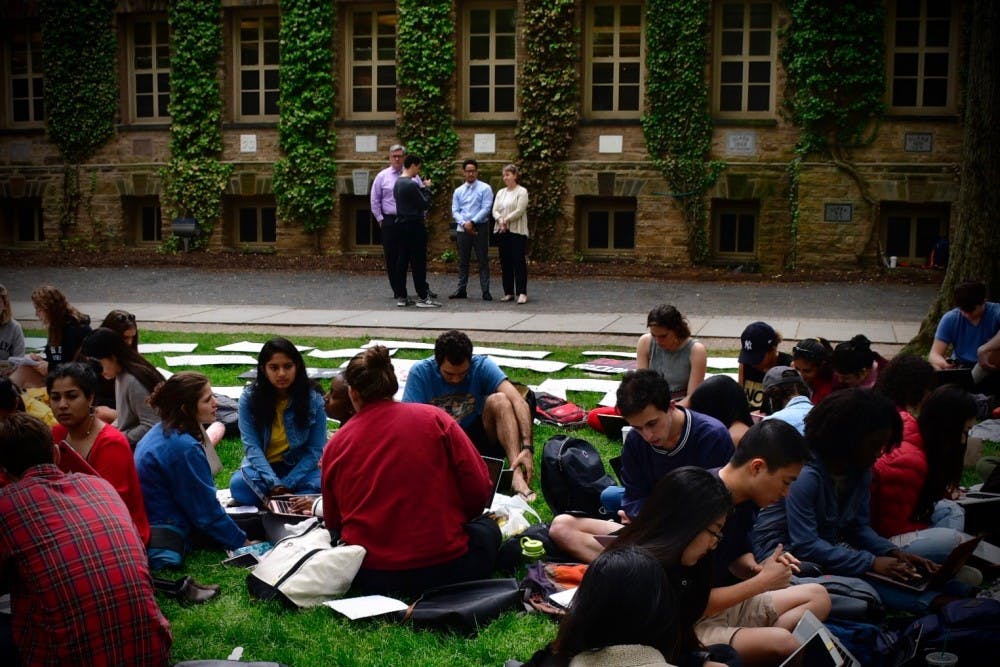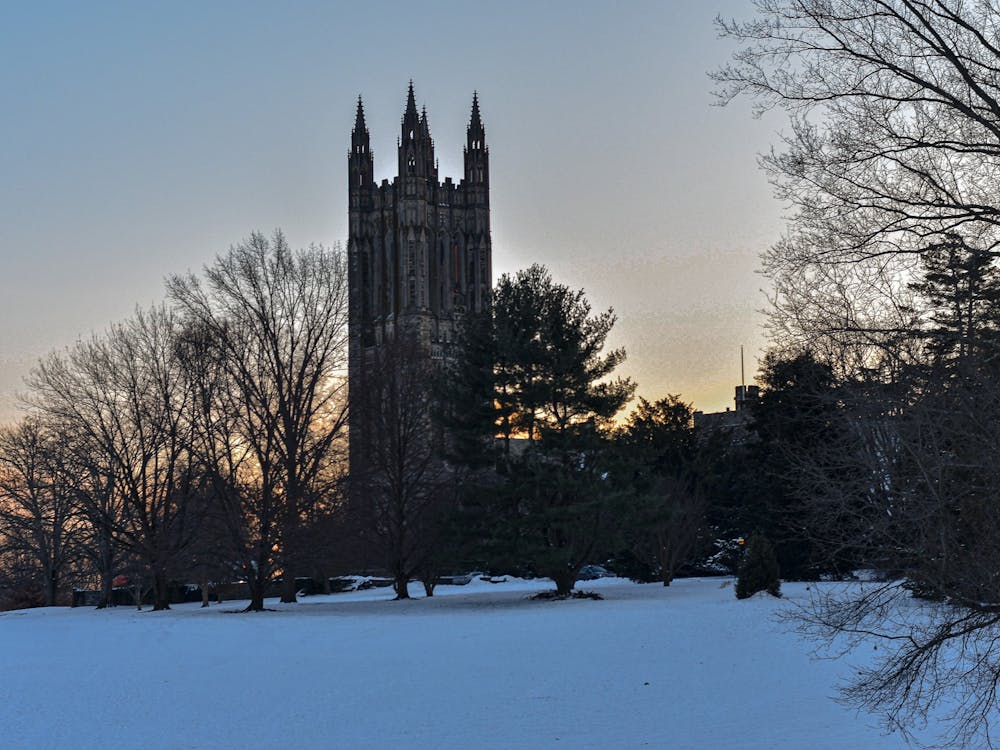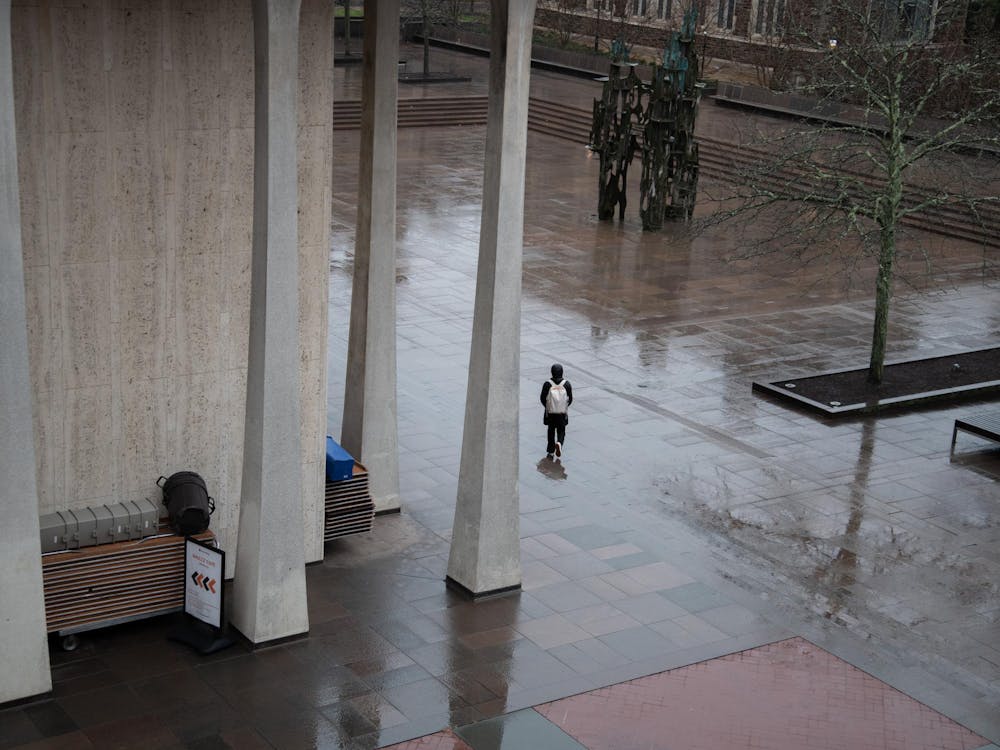On Friday, May 10, University-appointed “Open Expression Monitors” denied students involved in Princeton IX Now, which organized the recent Title IX-reform protests, the right to enter a reception to which “staff, faculty and community members” had been invited. At the same time, other students entered the building freely.
Open Expression Monitors — namely, staff from the Office of the Dean of Undergraduate Students (ODUS) — also supervised the Title IX-reform sit-in in front of Nassau Hall, which occurred for over a week, beginning on May 7.
For an institution that claims to protect open discourse and selected “Speak Freely” as its 2018 Pre-read, the fact that administrators double as “Open Expression Monitors” should alarm every member of our community. In theory, Open Expression Monitors protect free speech and allow controversial speakers to safely visit campus. Although instated only months ago, they now impede student expression against the administration. Open Expression Monitors betray a deceptive form of institutional-speech regulation.
Open Expression Monitors, employed by the institution whose policies fall under student scrutiny, are far from neutral supervisors. University policy prohibits students from “prevent[ing], or willfully attempt[ing] to prevent, the orderly conduct of a University function or activity.” Despite their inherent conflict of interest, Open Expression Monitors are tasked with determining whether students have violated that policy — a decision that carries punitive consequences.
The Editorial Board refrains from ideologically endorsing Princeton IX Now and neither condones nor condemns the methods employed by student protesters. Certainly, University representatives should be present at student demonstrations, not least to register and relay their concerns.
Nonetheless, we find the title of “Open Expression Monitor” to be as oxymoronic as it is Orwellian. During the May 10 confrontation, Open Expression Monitors prevented students from expressing themselves. Yet, in the University’s own words, “debate or deliberation may not be suppressed because the ideas put forth are thought by some or even by most members of the University community to be offensive, unwise, immoral, or wrong-headed.”
By positioning administrators, who are not tasked to listen to protesters’ demands, but rather to monitor and restrict their lawful behavior, in close physical proximity to demonstrators, the University stifles the type of unfettered, unsettling free speech it claims to champion.
Board Chairs
Chris Murphy ’20
Cy Watsky ’21
Board Members
Samuel Aftel ’20

Arman Badrei ’22
Ariel Chen ’20
Rachel Kennedy ’21
Ethan Li ’22
Jonathan Ort ’21
Madeleine Marr ’21 recused herself from the writing of this editorial.
This piece was published in a previous edition of The Daily Princetonian last May.









